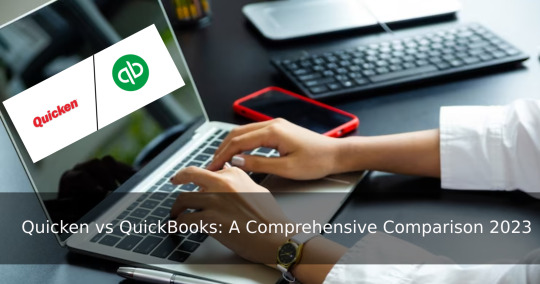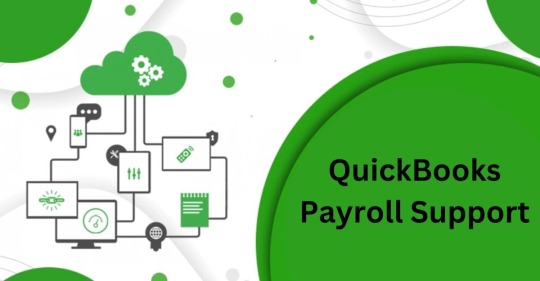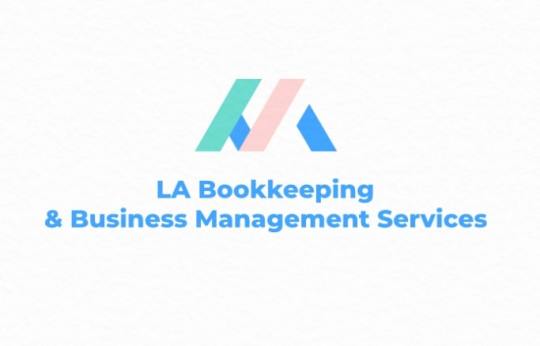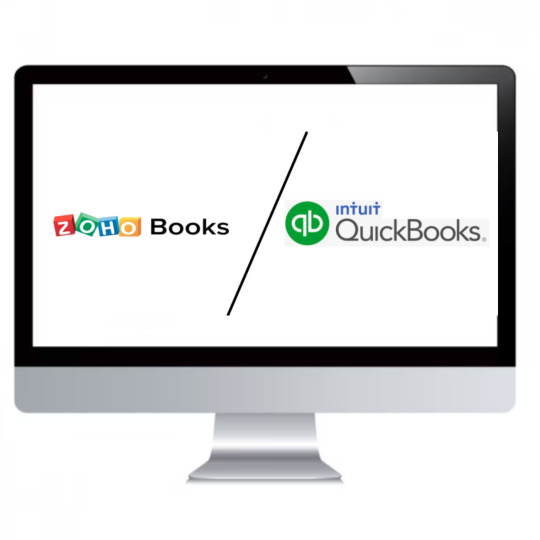#QuickBooks Payroll support
Explore tagged Tumblr posts
Text
0 notes
Text
Outsourced bookkeeping services have emerged as a powerful tool for streamlining CPA practices, enabling professionals to focus on what truly matters: delivering exceptional financial advisory and consulting services. As the accounting landscape continues to evolve, embracing the advantages of outsourced bookkeeping can position CPA firms at the forefront of success.
#CPA Bookkeeping#Certified Public Accountant#Financial Accounting#Small Business Accounting#Tax Preparation#Financial Reporting#Ledger Management#Income Statement#Balance Sheet#Cash Flow Analysis#Expense Tracking#Payroll Services#Tax Compliance#Budgeting and Forecasting#Audit Support#Tax Planning#QuickBooks Accounting#Financial Statements#Tax Filing#Accounting Software
0 notes
Text
0 notes
Text
CREVH - GOLD

QuickBooks is a renowned accounting software that offers a seamless solution for small businesses to manage their financial tasks efficiently. With features designed to streamline accounting processes, QuickBooks simplifies tasks such as tracking receipts, income, bank transactions, and more. This software is available in both online and desktop versions, catering to the diverse needs of businesses of all sizes. QuickBooks Online, for instance, allows users to easily track mileage, expenses, payroll, send invoices, and receive payments online, making it a comprehensive tool for financial management. Moreover, QuickBooks Desktop provides accountants with exclusive features to save time and enhance productivity. Whether it's managing income and expenses, staying tax-ready, invoicing, paying bills, managing inventory, or running reports, QuickBooks offers a range of functionalities to support businesses in their accounting needs.
Utilizing qb accounting software purposes comes with a myriad of benefits that can significantly enhance business operations. Some key advantages of using QuickBooks include:
- Efficient tracking of income and expenses
- Simplified tax preparation and compliance
- Streamlined invoicing and payment processes
- Effective management of inventory
- Generation of insightful financial reports
- Integration with payroll and HR functions
These benefits not only save time and effort but also contribute to better financial decision-making and overall business growth. QuickBooks is designed to meet the diverse needs of businesses, offering tailored solutions for various industries and sizes.
When considering accounting qb software options, QuickBooks stands out as a versatile and comprehensive choice. To provide a holistic view, let's compare QuickBooks with two other popular accounting software options - Xero and FreshBooks. quick book accounting package and offers robust features for small businesses, including advanced accounting capabilities, invoicing, payment processing, and payroll management. Xero, on the other hand, is known for its user-friendly interface and strong collaboration features, making it a popular choice among startups and small businesses. FreshBooks excels in invoicing and time tracking functionalities, catering to freelancers and service-based businesses. By evaluating the features, pricing, and user experience of these accounting software options, businesses can make an informed decision based on their specific needs and preferences.
555 notes
·
View notes
Text
Revolutionizing Transactions with PayWint Digital Wallet
In a world where convenience and efficiency dominate, the demand for reliable and feature-rich digital wallets has skyrocketed. Enter PayWint, the ultimate digital wallet solution designed to streamline your financial transactions while ensuring security and ease of use. Whether you're a student, traveler, freelancer, or small business owner, PayWint is here to revolutionize how you manage, send, and receive money.
Why Choose PayWint?
PayWint stands out in the crowded digital wallet space with its seamless features tailored to meet diverse user needs. From real-time alerts to AI-powered fraud detection, PayWint ensures your transactions are not just swift but also highly secure.
Key Features at a Glance:
Instant Money Transfers: Request, send, and receive money in real-time, making it the perfect companion for personal and professional needs.
Multi-Currency & Multi-Language Support: Operate effortlessly across borders, thanks to PayWint's global usability.
Shared Wallets: Split bills or manage group expenses with family, friends, or business partners through shared wallets.
Virtual & Physical Cards: Open a digital bank account and enjoy the convenience of virtual or physical cards.
Perfect for Everyone
PayWint caters to a diverse audience, ensuring inclusivity and functionality for all.
Students and Freelancers can use PayWint to manage international payments, ensuring they can receive funds from clients or family abroad without delays.
Small Business Owners can streamline payroll, vendor payments, and even customer transactions, all from one centralized platform.
Travel Enthusiasts can enjoy hassle-free currency conversions and transactions no matter where they are.
Unparalleled Integrations
One of PayWint's standout features is its ability to integrate with leading financial and payment platforms such as Apple Pay, Google Pay, PayPal, CashApp, and Venmo. Users can also link multiple bank accounts or credit and debit cards for effortless transactions. Moreover, businesses can integrate accounting platforms like QuickBooks, Zoho, or FreshBooks to simplify bookkeeping.
Enhanced Security & Real-Time Updates
Security is at the heart of PayWint. With encryption and AI-powered fraud detection, users can trust their financial data is always safe. Real-time alerts via text, email, or push notifications ensure you stay informed about every transaction.
Beyond Payments
PayWint isn't just a digital wallet; it's a comprehensive financial management tool. The AI-powered budget planner helps users track expenses and set financial goals. For businesses, the ability to schedule recurring payments and integrate payment widgets into websites adds unparalleled convenience.
Always There for You
With 24/7 customer support available via phone, email, text, and chat, help is always just a call or message away. You can reach us at (408) 516-1413 for any assistance. Whether it's a quick query or a technical issue, PayWint ensures you're never left in the dark.
Get Started with PayWint
Ready to transform how you handle money? Download the PayWint Digital Wallet Mobile App today from the Apple Store or Google Play Store. Alternatively, visit PayWint.com to access your financial world instantly.
2 notes
·
View notes
Text
In today’s fast-paced business environment, enhancing productivity is more crucial than ever to successfully accomplish this, one can rely on the power of automation. By automating routine tasks, businesses can save time, reduce errors, and focus on more strategic activities. In this blog post, we will explore essential automation strategies that can help boost productivity in your organization.
Boost productivity with these essential automation strategies. Automation is transforming the way businesses operate, making processes more efficient and streamlined. Implementing the right automation strategies can lead to significant improvements in productivity and overall business performance. In this article, we will discuss several key automation strategies that can help you achieve these goals.
1. Automate Repetitive Tasks
One of the most effective ways to boost productivity is by automating repetitive tasks. These tasks often consume a significant amount of time and can be easily automated using the right tools. For example, you can automate data entry, email responses, and appointment scheduling. By doing so, you free up valuable time for more critical activities.
2. Utilize Workflow Automation
Workflow automation involves creating a series of automated actions that complete a process. This strategy is particularly useful for complex processes that involve multiple steps and departments. Tools like Zapier and Microsoft Power Automate can help you set up automated workflows, ensuring that tasks are completed efficiently and accurately.
3. Implement Marketing Automation
Marketing automation can significantly enhance your marketing efforts by automating tasks such as email marketing, social media posting, and lead nurturing. Platforms like HubSpot and Mail chimp offer comprehensive automation features that can help you reach your target audience more effectively and improve your marketing ROI.
4. Enhance Customer Service with Chatbots
Integrating chatbots into your customer service strategy can greatly improve efficiency and customer satisfaction. Chabot’s can handle a wide range of customer queries, provide instant responses, and escalate issues to human agents when necessary. This not only saves time but also ensures that customers receive timely and accurate support.
5. Streamline Financial Processes
Automation can also be applied to financial processes such as invoicing, expense tracking, and payroll management. Tools like QuickBooks and Xero offer robust automation features that can help you manage your finances more efficiently and reduce the risk of errors.
Boost Productivity with These Essential Automation Strategies. Automation is a powerful tool that can help businesses enhance productivity and efficiency. By implementing the strategies discussed in this article, you can streamline your processes, reduce manual workload, and focus on more strategic activities. Have you tried any of these automation strategies?
#Automation#Productivity#BusinessEfficiency#TechTrends#WorkflowAutomation#DigitalTransformation#AutomationTools#SmartBusiness#Innovation#Accomation#BusinessAutomation#InvoiceManagement#EfficiencyTools#AutomationSolutions#SmallBusinessTools#StreamlineOperations#BusinessGrowth#FinancialAutomation
2 notes
·
View notes
Text
0 notes
Text
Quicken vs QuickBooks: Which One is Right for Your Business?
Are you struggling to choose the right accounting software for your business? Look no further! In this post, we'll be comparing Quicken vs QuickBooks – two of the most popular accounting software on the market. Both are powerful tools that offer features to manage your finances, but which one is right for you? Join us as we dive into what makes these two options unique and how to make an informed decision based on your business needs. Let's get started!

Comparing Quicken vs QuickBooks
When it comes to managing your business finances, Quicken and QuickBooks are two of the most popular software options available. While Quicken vs QuickBooks both programs offer similar accounting features such as tracking expenses and income, there are some key differences between them.
Quicken is designed primarily for personal finance management. It's a great option if you're self-employed or run a small business with just a few employees. With Quicken, you can track your bank accounts, credit cards, investments and more in one place.
On the other hand, QuickBooks is more ideal for businesses that require robust accounting tools like inventory management and payroll processing. It's also suitable for larger organizations with multiple users who need access to financial data simultaneously.
Another difference between these two platforms is their pricing models. Quicken offers a one-time purchase fee while QuickBooks has monthly subscription plans based on the features required by your business.
Ultimately, choosing between Quicken vs QuickBooks depends on your specific needs as well as the size and complexity of your organization. Consider factors such as budget constraints and which features are necessary for efficient financial management before making a decision.
What is Quicken?
Quicken is a personal finance management software that has been around since 1983. It was originally designed to help individuals manage their finances by tracking income and expenses, creating budgets, and generating reports. Today, Quicken offers various versions of its software that cater to different financial needs.
One version of Quicken is called Quicken Deluxe which allows users to track investments in addition to managing their personal finances. Another version is called Quicken Premier which includes features for managing rental properties as well as investment tracking.
Quicken also offers a mobile app that allows users to access their financial information on the go. Users can sync their data across devices so they always have access to up-to-date information.
Quicken is best suited for individuals or small businesses looking for an easy way to manage their personal finances without needing advanced accounting knowledge.
What is QuickBooks?
QuickBooks is a popular accounting software designed for small businesses to manage their financial transactions, invoices, bills and expenses. It was developed by Intuit and first released in 1983 as a desktop application. Since then, it has expanded its features and services to cater to the growing needs of businesses.
This software allows users to track inventory levels, create sales orders, generate reports and integrate with other applications such as payroll systems. QuickBooks also offers cloud-based versions that enable users to access their data from anywhere at any time.
One of the key benefits of using QuickBooks is its user-friendly interface which makes it easy for beginners to navigate through various financial tasks. The program also provides tutorials and customer support resources for those who need additional assistance.
Another great advantage of this software is that it can be customized according to specific business requirements. Users can choose from different plans based on the size of their business or opt for add-ons like payroll management or payment processing services.
QuickBooks has become a go-to solution for small businesses looking for an efficient way to handle their finances while staying organized and compliant with tax laws.
The Difference between Quicken vs QuickBooks
Quicken and QuickBooks are both financial management software options, but they serve different purposes. Quicken is a personal finance management tool that can help individuals with their budgeting, banking, and investment tracking needs. On the other hand, QuickBooks is an accounting software designed specifically for small businesses.
One of the key differences between Quicken vs QuickBooks is in their functionality. While Quicken focuses on managing personal finances, QuickBooks offers more comprehensive features such as invoicing, payroll processing, inventory management, and accounts payable/receivable. This makes it a better option for small business owners who need to manage multiple aspects of their financial transactions.
Another difference between these two accounting tools is their pricing model. Quicken typically charges a one-time fee for purchasing its software while QuickBooks follows a subscription-based model where users pay monthly or annually depending on the plan they choose.
Deciding whether to use Quicken vs QuickBooks depends largely on your individual needs as well as those of your business if you have one. If you're looking for robust accounting capabilities with features like invoicing or inventory tracking then go for QuickBooks while if you're just looking to manage personal finances then stick with Quicken
Which One is Right for Your Business?
When it comes to deciding which accounting software is right for your business, there are a few factors you should consider. One of the first things you need to determine is what specific features your business needs. For example, if your business requires inventory tracking or payroll management, QuickBooks may be the better option for you.
Another important consideration is the size of your business. Quicken may be more suitable for small businesses or sole proprietors who don't require as many advanced features as larger companies. On the other hand, QuickBooks can handle multiple users and large amounts of data, making it ideal for medium-sized and larger businesses.
The level of technical expertise required to use each software platform is also an important factor to consider. If you have limited experience with accounting software and want something user-friendly and easy-to-learn, Quicken may be a better choice. However, if you're comfortable with technology and want more advanced capabilities like custom reports or integrations with other software tools, QuickBooks might suit your needs better.
Ultimately, choosing between Quicken vs QuickBooks depends on understanding what your business requirements are in terms of functionality, size and technical aptitude. By taking these factors into account when selecting an accounting solution that best meets those criteria will help ensure success over time.
How to Choose the Right Accounting Software for Your Business
Choosing the right accounting software for your business can be overwhelming, especially with so many options available. Here are some important factors to consider when selecting the best fit for your needs:
Business Size: Consider the size of your business and whether you need a basic or advanced accounting system.
Features: Look at the features offered by each platform and determine which ones are essential for managing your finances.
User Interface: Make sure that you choose a user-friendly interface that is easy to navigate and understand.
Integration: Check if the software integrates with other tools such as payment processors, CRMs, or inventory management systems.
Support: Choose a platform that offers reliable customer support in case any issues arise.
Security: Ensure that the software has robust security measures in place to safeguard sensitive financial data from potential cyber threats.
Pricing: Determine whether there are any upfront costs, monthly fees or hidden charges associated with using the accounting software before making a final decision.
By considering these factors carefully when choosing an accounting system, you'll have greater confidence in finding one that meets all of your requirements and helps drive success for your business!
Conclusion
After comparing Quicken vs QuickBooks and analyzing the features of both accounting software, it's clear that they have significant differences.
Quicken is best suited for individuals or small business owners who need to manage their personal finances or do basic bookkeeping tasks. On the other hand, QuickBooks provides a more robust platform with advanced tools and features that cater to larger businesses.
Choosing the right accounting software depends on your individual needs and budget. Consider factors such as business size, industry type, level of financial expertise, and future growth plans when making your decision.
Whichever software you choose between Quicken vs QuickBooks will help streamline your financial management processes and improve the accuracy of your accounting records. So take time to evaluate both options carefully before deciding which one is right for your business!
3 notes
·
View notes
Text
Essential Strategies for Effective Business Financial Record-Keeping
Proper financial record-keeping is crucial for any business, ensuring tax compliance, aiding financial decision-making, and supporting long-term growth. Follow these key strategies to manage your business finances effectively.
1. Recognize the Importance of Financial Records
Accurate financial records provide several advantages:
Regulatory Compliance: Helps businesses adhere to tax laws and prepare for audits.
Financial Health Monitoring: Tracks income and expenses to assess business performance.
Informed Decision-Making: Facilitates budgeting, forecasting, and strategic planning.
For expert tax planning, explore Lodestar Taxes’ Tax Planning Services.
2. Choose the Right Accounting Method
Selecting the best accounting method can simplify financial management:
Cash Basis Accounting: Recognizes revenue and expenses when money is received or paid. Best for small businesses.
Accrual Basis Accounting: Records transactions when they occur, offering a comprehensive financial outlook.
3. Utilize Accounting Software
Investing in accounting software streamlines financial tracking:
Automated Financial Management: Tools like QuickBooks, Xero, and FreshBooks simplify bookkeeping.
User-Friendly Interfaces: Designed for business owners with little accounting experience.
Integration Capabilities: Syncs with payroll, invoicing, and inventory management tools.
4. Keep Financial Documents Organized
A well-structured system enhances efficiency and accessibility:
Consistent Categorization: Organize receipts, invoices, and bank statements systematically.
Digital Storage Solutions: Utilize cloud-based platforms for secure access and backups.
Regular Audits: Conduct periodic reviews to ensure data accuracy.
5. Maintain Accurate Income and Expense Records
Recording all financial transactions prevents discrepancies:
Detailed Documentation: Keep receipts, invoices, and bank statements as proof.
Separate Business and Personal Finances: Maintain a dedicated business account for clarity.
6. Implement Strong Internal Controls
Internal safeguards help minimize financial errors and fraud:
Assign Financial Responsibilities: Distribute tasks to reduce risk and increase accountability.
Conduct Regular Audits: Identify inconsistencies and ensure compliance.
7. Stay Updated on Tax Regulations
Understanding tax requirements is crucial for compliance:
Consult Tax Professionals: Stay informed about tax law changes.
Track Deductible Expenses: Maintain records of business expenses to maximize deductions.
For professional tax preparation, visit Lodestar Taxes’ Tax Preparation Services.
8. Develop and Maintain a Business Budget
A structured budget ensures financial stability:
Set Realistic Financial Goals: Use past data to create accurate projections.
Monitor and Adjust: Compare projected vs. actual financial performance regularly.
9. Reconcile Financial Records Regularly
Frequent reconciliation keeps records accurate:
Monthly Reviews: Compare financial records with bank statements.
Resolve Discrepancies: Address inconsistencies promptly to maintain accuracy.
10. Secure Your Financial Data
Protecting financial records prevents unauthorized access and data loss:
Cloud-Based Backup Solutions: Ensure data safety with automated backups.
Physical Record Storage: Store essential documents securely.
11. Retain Financial Records for the Required Duration
Keeping records for the proper timeframe is essential:
General Tax Records: The IRS recommends retaining records for at least three years.
Employment Tax Records: Should be kept for a minimum of four years.
12. Seek Professional Financial Assistance
Expert financial support can optimize business operations:
Hire an Accountant: Professionals assist with bookkeeping and tax reporting.
Consult Tax Advisors: Specialists help maximize tax savings and ensure compliance.
For IRS resolution services, check out Lodestar Taxes’ IRS Resolution Services.
Conclusion
Effective financial record-keeping is key to business success. By following these best practices, you can enhance compliance, improve financial stability, and foster long-term growth. Lodestar Taxes offers expert tax planning, preparation, and IRS resolution services to help you manage your business finances efficiently.
0 notes
Text
QuickBooks Support Email & Chat Services +1818-806-0127 - Quick Global Support
Quickbookstool hub provides an efficient solution to the customers regarding the accounting software. The team of professionals at Quickbooks tool hub is highly qualified to provide a top-notch solution for the accounting software support to the customers. we have an Intuit certified team that deals in all types of errors and issues in the Quickbooks software and make sure to provide the best solution. The accounting support team at the Quickbookstool hub is available 24/7 https://quickglobalsupport.com/ to make sure you get 100 percent satisfying service. the team of experts provides bookkeeping, payroll, and accounting related services to the customers.
Call us for instant help – We are available 24*7
+1818-806-0127

1 note
·
View note
Text
Unlock Growth & Efficiency with Collab Accounting’s White-Label Services

The accounting industry is evolving rapidly, and firms are constantly looking for ways to scale without adding operational burdens. This is where Collab Accounting’s white-label services come in—allowing accounting firms to expand their offerings, improve efficiency, and deliver top-tier services under their own brand.
What Are White-Label Accounting Services?
White-label services mean we handle your Accounting, Bookkeeping, and compliance needs while you take the credit. Your clients see your brand, while our team works in the background to ensure smooth operations.
How We Help Accounting Firms Scale Effortlessly
1. End-to-End Bookkeeping & Compliance – Our experts handle everything from transaction entries to reconciliations, BAS lodgments, and Payroll processing.
2. Xero, QuickBooks & MYOB Expertise – We integrate seamlessly with your existing systems, ensuring accuracy and efficiency.
3. SMSF & Tax Return Preparation – We help firms streamline complex tax compliance while maintaining 100% confidentiality.
4. Virtual CFO Support – Need an extra layer of financial expertise for your clients? We provide Financial analysis, forecasting, and reporting to help businesses make better decisions.
5. Scalability Without Overheads – No need to hire in-house accountants when you can have a dedicated offshore team working under your brand.
Why Choose Collab Accounting?
1. 100% White-Label Model – Your clients see your brand, and we do the work. 2. Dedicated Team with Full Compliance – We ensure data security and adherence to Australian accounting standards. 3. Seamless Communication – Work with a team that understands your business, aligns with your processes, and provides real-time updates.
Let’s Partner for Success!
If you’re an accounting firm looking to scale without increasing overhead costs, our white-label services can be the perfect solution. Focus on growing your firm while we handle the work.
Get in touch with us today to explore a tailored white-label accounting solution!
#bookkeeping services for small business#outsource payroll services#bookkeeping services outsourcing#top 10 accounting outsourcing companies in india
0 notes
Text
Enshittification - Intuit I started with quickbooks in 2000. Converted 5 to 6 at work. Cost about $125 for the program and $25/year for payroll form updates. Updated to 2002. Cruised. Around 2008 they demanded an update to continue payroll forms. And 2011, etc. Every three years. Needed to buy a complete copy while the price wandered up to $200. A couple years back they said they were improving the desktop version by making it annual subscription. Went to $400 per year, going up now to $500 per year. Payroll forms is also $500 per year. Each direct deposit adds up to $500 per year. So they send me a strongly worded email to watch out for fake software:
We want to alert you that there are unauthorized websites and resellers on ecommerce platforms that are selling fraudulent versions of QuickBooks Desktop software. Intuit no longer offers new subscriptions of QuickBooks Desktop Plus or QuickBooks Desktop Enhanced Payroll and no longer makes the non-subscription (sometimes referred to as Lifetime or perpetual license) versions of QuickBooks Desktop Pro, Premier, and Mac. Please note that existing QuickBooks Desktop Plus and Desktop Payroll subscribers, like yourself, can continue to renew their subscriptions to get security updates, product updates, and support. Hence desktop wanders off to the boneyard. They want folks to use the website software, which is mostly braindead. [ i tried it with a sample file, the graphics were awful ] And needs to get paid by the month. btw, I said very quietly during tax season, which is causing Intuit great pain with the new IRS DirectFile, a friend tells me that a copy of QB 2019 is still operating fine on desktop with no payroll.
1 note
·
View note
Text
The Ultimate Guide to Bookkeeping in Los Angeles for Small Businesses

Introduction
Bookkeeping is an essential part of running a successful small business. It involves keeping accurate records of financial transactions, managing cash flows, and ensuring compliance with tax regulations. For small businesses in Los Angeles, effective bookkeeping is not just a legal requirement but a strategic tool that can help drive business growth. This ultimate guide will explore everything you need to know about bookkeeping in Los Angeles, providing insights and tips to manage your business finances efficiently.
Understanding Bookkeeping
What is Bookkeeping?
Bookkeeping refers to the systematic recording and organizing of financial transactions. It's the foundation of your business's accounting process, providing crucial data for financial analysis and decision making.
Importance of Bookkeeping for Small Businesses
Bookkeeping helps in tracking income and expenses, measuring financial performance, preparing for tax obligations, and supporting strategic planning. For small businesses in Los Angeles, effective bookkeeping can make the difference between success and failure.
Bookkeeping in Los Angeles: Local Considerations
Compliance with Local Regulations
Los Angeles has specific tax laws and business regulations that require meticulous bookkeeping. Staying compliant helps avoid penalties and ensures that your business operates smoothly.
Cultural and Economic Factors
Understanding the local market dynamics and economic conditions is crucial for tailoring your bookkeeping practices to suit Los Angeles's unique business landscape.
Essential Bookkeeping Practices for Small Businesses
Maintaining Accurate Records
Accurate record-keeping is vital. It involves tracking all financial transactions, including sales, purchases, income, and payments.
Organizing Financial Documents
Proper organization of invoices, receipts, and bank statements is essential for efficient bookkeeping and easy access during audits or tax filings.
Utilizing Technology
Modern bookkeeping software can streamline processes and improve accuracy. Tools like QuickBooks, Xero, and FreshBooks are popular among Los Angeles businesses.
Common Bookkeeping Challenges and Solutions
Managing Cash Flow
Cash flow management is a critical challenge for small businesses. Using cash flow projections and regular monitoring can help maintain liquidity.
Handling Payroll
Payroll can be complex, especially with changing tax laws. Outsourcing payroll services or using payroll software can be highly beneficial.
Preparing for Tax Season
Tax preparation requires comprehensive bookkeeping. Staying organized throughout the year ensures you're ready for tax season without stress.
How Bookkeeping in Los Angeles Supports Business Growth
Financial Analysis and Planning
Bookkeeping provides valuable insights into financial health, enabling strategic planning and informed decision-making.
Building Trust with Stakeholders
Transparent financial reporting builds trust with investors, partners, and customers, which is vital for business growth.
Ensuring Sustainability
Effective bookkeeping helps manage costs and optimize resources, ensuring long-term sustainability in a competitive market.
Conclusion
For small businesses in Los Angeles, bookkeeping is not just about maintaining financial records—it's a strategic asset that supports growth and compliance. By implementing effective bookkeeping practices, you can ensure accurate financial management and focus on expanding your business. LA Business specializes in bookkeeping in Los Angeles, offering tailored services to help your business thrive in this dynamic market.
FAQs:
What are the key components of bookkeeping in Los Angeles for small businesses?
The key components include accurate record-keeping, compliance with local tax laws, cash flow management, and financial reporting.
How can a small business in Los Angeles benefit from professional bookkeeping services?
Professional bookkeeping services provide expertise in managing finances, ensuring compliance, and freeing up time for business owners to focus on growth.
Why is it important to use bookkeeping software in Los Angeles?
Bookkeeping software enhances accuracy, efficiency, and ease of access to financial data, vital in a fast-paced business environment like Los Angeles.
What should I look for when choosing a bookkeeping service in Los Angeles?
Look for experience, expertise in local regulations, technology proficiency, and a tailored approach to meet your business needs.
How does bookkeeping impact tax preparation for a business in Los Angeles?
Proper bookkeeping ensures that all financial transactions are recorded accurately, facilitating smooth and accurate tax preparation and filing.
Can bookkeeping services help in managing payroll for small businesses in Los Angeles?
Yes, many bookkeeping services offer payroll management as part of their offerings, ensuring compliance with tax laws and accurate payroll processing.
0 notes
Text
The Ultimate Comparison of Zoho Books and QuickBooks for Small Business Owners
Introduction
Running a small business is no easy feat. From managing finances to handling client relationships, the responsibilities can be overwhelming. However, with the right tools in hand, you can streamline your operations and simplify your workload significantly. Two of the most popular accounting software options for small businesses are Zoho Books and QuickBooks. But which one should you choose?

In this ultimate comparison guide of Zoho Books vs QuickBooks, we'll take a deep dive into both platforms' pros and cons so that you can make an informed decision on what's best for your business needs!
What is Zoho Books?
Zoho Books is an easy-to-use cloud-based accounting software designed specifically for small business owners. It offers a range of features to help manage finances, including invoicing, expense tracking, inventory management and time-tracking.
One of the best things about Zoho Books is its user-friendly interface. Even if you have no prior experience with accounting software, you can easily navigate through the platform and get started in no time.
Another noteworthy feature of Zoho Books is its automation capabilities. You can set up recurring invoices or automatic payment reminders to save yourself time on manual tasks. Additionally, Zoho Books integrates seamlessly with other apps within the Zoho suite and third-party applications like Stripe and PayPal.
Zoho Books provides a cost-effective solution for small businesses looking to streamline their financial operations without sacrificing functionality or ease-of-use.
What is QuickBooks?
QuickBooks is an accounting software that targets small and medium-sized businesses. It was developed by Intuit, a well-known financial software company based in Mountain View, California. QuickBooks offers a range of features such as bookkeeping, invoicing, payroll management, and inventory tracking.
One of the key features of QuickBooks is its user-friendly interface which makes it easy for non-accountants to use. The software also integrates with various third-party applications like PayPal and Shopify to provide users with more functionality.
Moreover, QuickBooks comes in both desktop and online versions meaning you can choose the one that suits your business needs. Desktop version requires installation on your computer while the online version allows you to access the app from anywhere provided you have internet connection.
QuickBooks is ideal for small business owners who need basic accounting tools without spending too much time learning complex financial jargon.
The Pros and Cons of Zoho Books
Zoho Books is a cloud-based accounting software designed for small businesses. It offers many features that can help business owners manage their finances effectively.
One of the pros of Zoho Books is its affordability. The pricing plans are reasonable and offer great value for money, especially when compared to other accounting software on the market.
Another advantage of Zoho Books is its user-friendly interface. Even if you're not an accounting expert, you can easily navigate through the software with ease.
Furthermore, Zoho Books also allows users to customize invoices and reports which can be helpful in branding your business identity as well as presenting financial data more professionally.
On the downside, some users have reported glitches with certain features like inventory management and bank reconciliation. Also, customer support may take longer than usual to respond sometimes leaving users waiting for hours or days before getting assistance.
Zoho books offer a wide range of benefits at an affordable price point but it’s important to consider the potential drawbacks too before making a final decision about whether this solution will meet your needs and expectations.
The Pros and Cons of QuickBooks
QuickBooks is a popular accounting software that has been around for decades. It offers a variety of features to help small business owners manage their finances effectively. Here are some pros and cons of using QuickBooks.
Pros:
One of the biggest advantages of QuickBooks is its user-friendly interface, which makes it easy to navigate and use even for non-accountants. The software also offers a wide range of features such as invoicing, expense tracking, inventory management, and payroll processing.
Another benefit of using QuickBooks is its integration with other applications like Microsoft Excel, TurboTax, and Salesforce. This allows you to import data from other sources into QuickBooks seamlessly.
Moreover, QuickBooks provides excellent customer support through phone or chat services and has an extensive knowledge base that can answer most common questions.
Cons:
One major drawback of using QuickBooks is its high cost compared to other accounting solutions in the market. Additionally, some users have reported glitches or difficulties when attempting to run certain functions within the software.
Furthermore, while it does offer many features that are helpful for small businesses operations; however this may be overwhelming for some users who only require basic functionalities but still need to pay the full price for all options provided by the software.
Which One is Right for You?
Choosing between Zoho Books and QuickBooks can be a tough decision, as both offer unique features to small business owners. To determine which one is right for you, there are a few factors to consider.
Firstly, the size of your business plays an important role in choosing between the two platforms. If you're running a smaller operation with fewer employees and transactions, then Zoho Books might be the way to go due to its affordability and ease of use. However, if your business has more complex accounting needs or multiple users that need access to financial information, QuickBooks may be better suited for you.
Another factor to consider is what type of industry your business operates in. QuickBooks offers more specialized versions geared towards specific industries such as construction or nonprofit organizations. On the other hand, Zoho Books caters more towards service-based businesses like consulting firms or marketing agencies.
It's worth considering whether integration with other software programs is important for your business operations. QuickBooks has been around longer and therefore may have stronger integrations with other common software systems like Microsoft Office Suite or Salesforce.
Ultimately, choosing between Zoho Books vs QuickBooks comes down to individual needs and preferences based on these various factors mentioned above - ensuring that you pick an accounting platform tailored specifically for your unique requirements will make all the difference in managing finances effectively!
Conclusion
After comparing Zoho Books vs QuickBooks, it's clear that both accounting software packages have their strengths and weaknesses. Ultimately, the decision on which one to use will depend on your specific business needs.
If you're a small business owner who is looking for an affordable solution with excellent invoicing capabilities, then Zoho Books may be the right choice for you. However, if you require more advanced accounting features or a system that integrates with other applications seamlessly, then QuickBooks may be the better option.
Regardless of which platform you choose, make sure to do your research thoroughly before committing to any particular accounting software. By taking the time to carefully evaluate each package's pros and cons in light of your company's unique requirements, you'll ensure that you end up with an ideal solution that helps streamline your operations while providing accurate financial data at all times.
3 notes
·
View notes